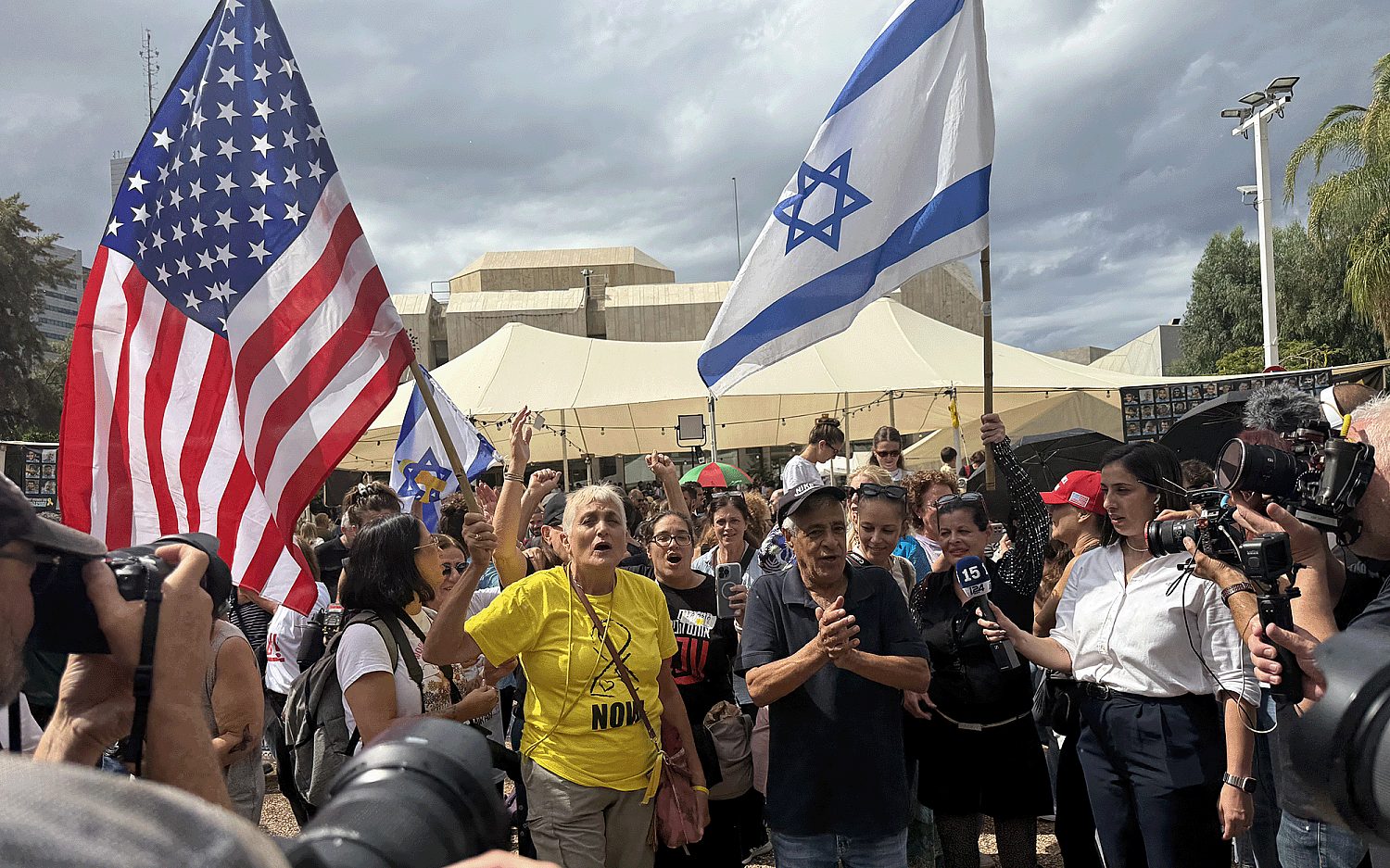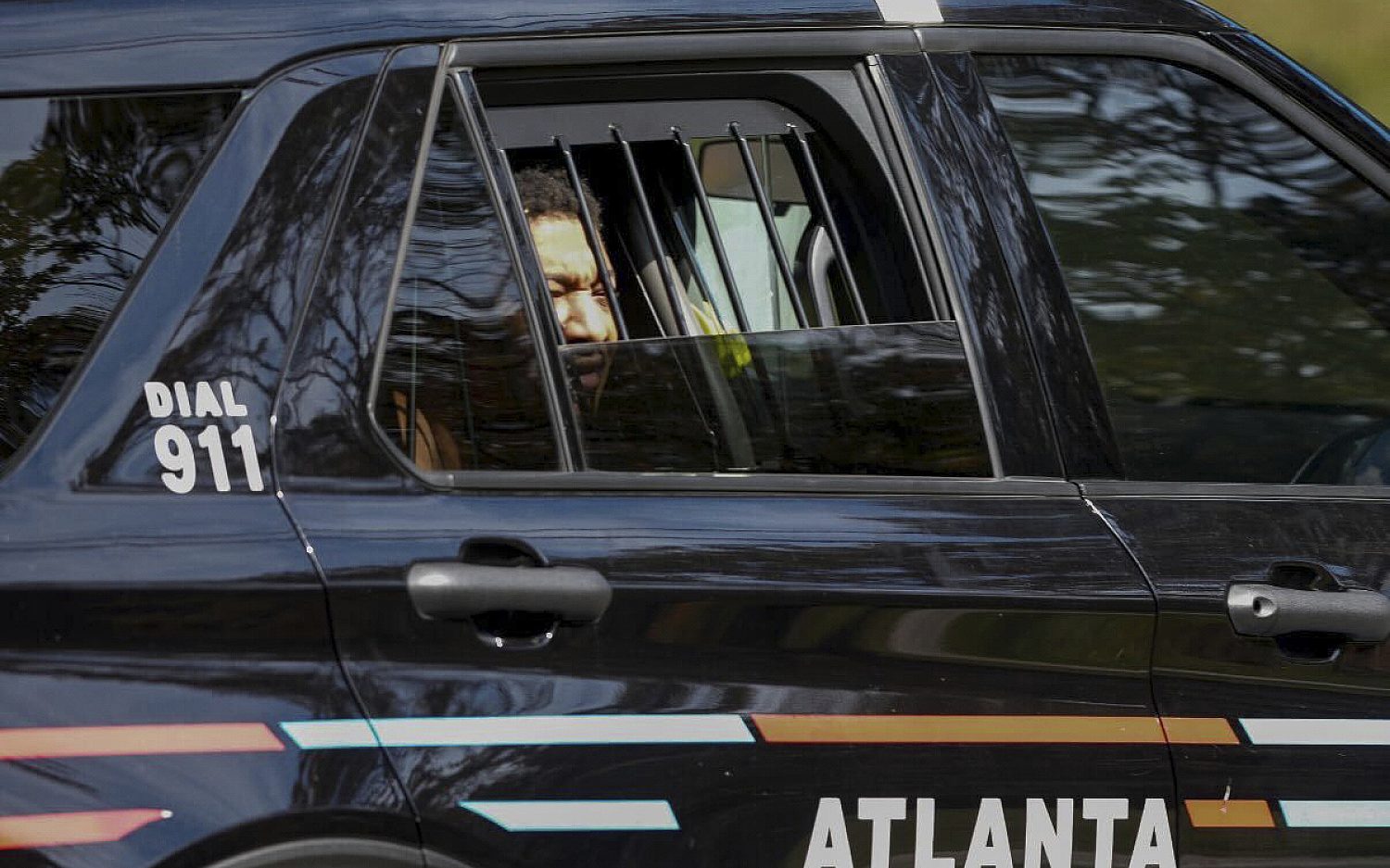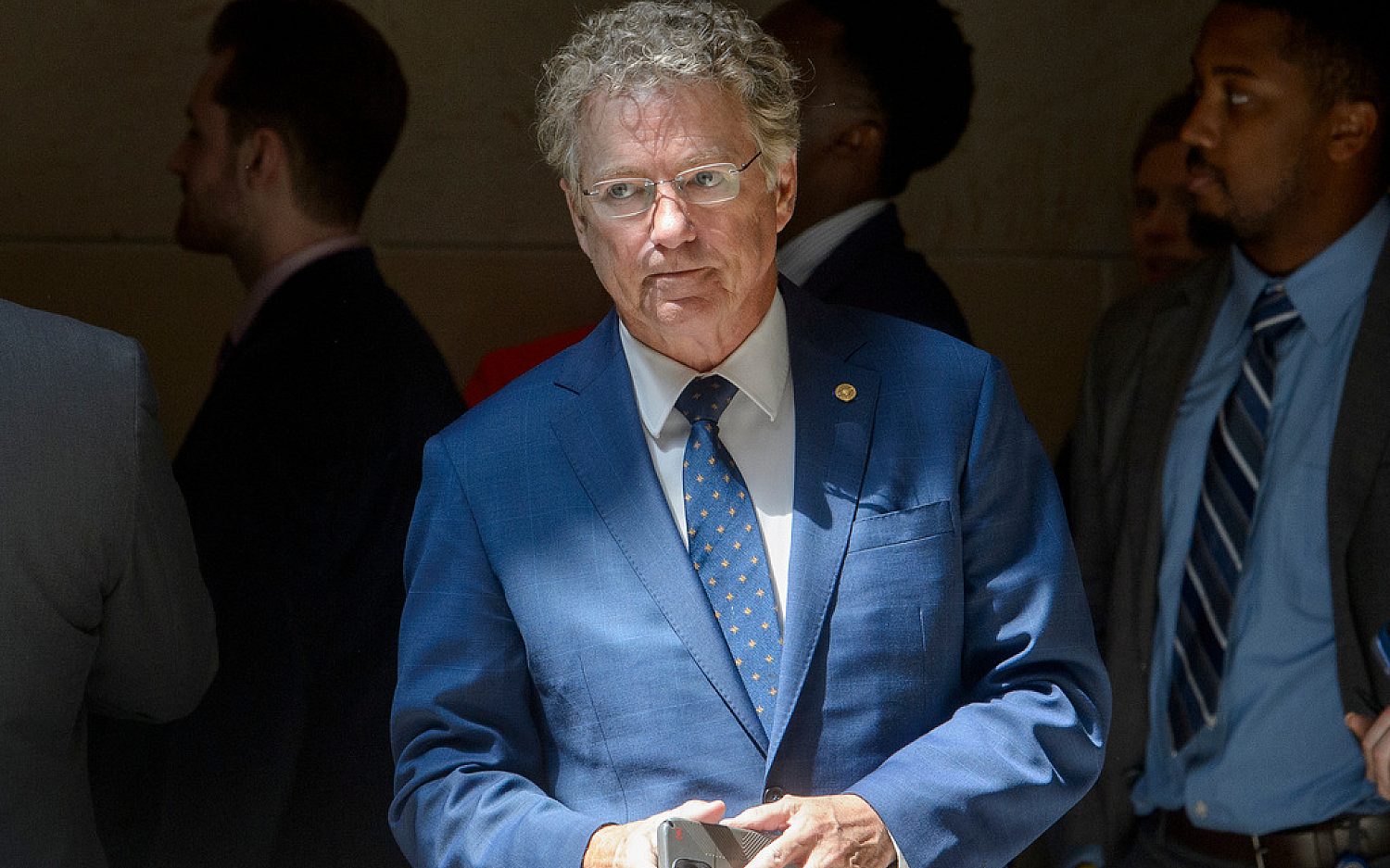Steve Russell's journey from Iraq to Congress
The freshman congressman talks about capturing Saddam, supporting the troops, and keeping the faith on Capitol Hill
Rep. Steve Russell, R-Okla., is a fifth-generation Oklahoman, and he represents Oklahoma’s 5th Congressional District in Congress. Before coming to Washington, Russell served four years in the Oklahoma State Senate. Prior to that, he served 21 years in the U.S. Army. His unit attracted national and international attention when the battalion captured Saddam Hussein. I had this conversation with Russell in his office in Washington, D.C.
Can you tell about your experience finding Saddam Hussein? I had the privilege to command Task Force 1-22 Infantry in Tikrit, Iraq, in the Fourth Infantry Division, First Brigade, commanded by Col. Jim Hickey. I was one of his task force commanders, and we had the distinct privilege to be part of the units that were involved in the hunt and capture of Saddam. There were many units. I commanded one of the Infantry Task Force.
You spent a number of years retired as a lieutenant colonel. I turned down full colonel and a Queen’s University fellowship to Kingston, Canada, for the War College. It was just time to come home and watch my kids grow.
At your age, general would have been a very real possibility. I had several senior officers and generals that called me, to include current Army Chief of Staff Gen. Raymond Odierno, who was my division commander in Iraq. He said, “What are you doing?” He saw my paperwork hit the retirement desk in the Army G-1’s office and they sent it to him. … I said, “It’s not about anything, other than I need to do this. It’s the right time for my family.”
What do you bring from that experience to the chair you’re sitting in today as a member of Congress? The discipline to solve a problem, to work every angle, to have backup plans and reserves, to be able to quickly think through a situation, has all served me well in my political life. I never would have imagined I would have had a political life. This is something that I did not ever see me doing, being a congressman.
How did you transition into politics? I was holding a rally for the troops, to support them while they were in Iraq. I was tired of all of the rhetoric. Having recently retired from the service and just come from there, I knew that the stories that were on the news were not the case, that the soldiers could turn it around. It really largely became a political issue. We turned out a thousand people at a big rally in Oklahoma at the state Capitol in the plaza, and people asked, “Wow, who put that together?” We did it in 2 1/2 weeks, and the state party chair, Gary Jones, at the time—he’s now our state auditor in Oklahoma—he approached me about running for the state legislature. I initially was not interested at all. But the more I got to thinking about it …I thought, you know there’s a couple of things I’d like to do: Maybe a soldiers relief act, which would make soldiers tax exempt, work on some adoption reform, do some other things [on] Second Amendment rights.
You’ve got a personal interest in adoption, don’t you? Three of my five children are adopted. We adopted three orphan siblings from Hungary when they were 5, 6, and 8. It was a very personal decision. We have two other children as well. I was in the service at the time. … It is a burden that … unless you’ve been through it yourself, you don’t really understand all of the additional challenges that come with integrating a family.
Were you able to accomplish things in the state legislature to help adoptive families? I was. We worked very closely with the district attorney, David Prater, in Oklahoma, with Jason Nelson in the state House, and we formed an adoption task force to look at some human trafficking issues and to do some reforms. After about two years of hearings and other things, it was kind of a mess, but we eventually adopted some laws that finally got all of that tightened up. There were some loopholes allowing people to profiteer … and we were able to put an end to that.
While you were in the state legislature, you owned a company that makes guns. Still do. To my knowledge, I’m the only arms manufacturer in the Congress. I own a company that makes replicas of Iraqi firearms. I was mad I couldn’t bring a souvenir home from the war, [so I] altered an existing rifle to look like an Iraqi rifle. Several of my friends liked it, asked if I could do that for them, and after a while I realized there might be a market for it. We founded Two Rivers Arms in 2010. … Our rifles were featured in Clint Eastwood’s movie American Sniper. We made six rifles for the film: Two sniper rifles and four Iraqi AKs.
The House has been talking about this bill on trade promotional authority for days, weeks, months now. You’ve given a couple of speeches on the floor. The House leadership seems to be lining up behind this bill. Do you think it’s a good idea? The Trade Promotional Authority in a nutshell—TPA, they call it—grants presidents the ability to negotiate with other nations, head-of-state to head-of-state. Within the framework of that, a limited window of authority will be given to the president where he can do direct negotiations, make an agreement and then come back to Congress. Unlike treaties, it is just majority votes in each House. You’re limited to only 20 hours of debate in each House on any agreement that is signed and you can’t amend it. It’s an up or down vote. …
Now I’m not against free trade. I’m not even against good, bilateral, or, in some rare cases, multilateral agreements for trade. I am very, very concerned that an executive has a window of time and they can set the parameters for what these trade agreements might be or become. It has to be based, I believe, on their performance on foreign policy. There’s where I have the biggest rub. This president has a dismal record of foreign policy.
If there were another president, or somebody that you trusted in the White House, could you support TPA? I was not a big fan of Jimmy Carter, but I admired his foreign policy achievements. I would have less of those concerns with that. I’m most alarmed that the president, and also the architects in Congress of the TPA bill, are framing it up as an anti-Chinese measure. … I think that is very shortsighted. We need China. China needs us. We’ve had 40 years of engagement. We don’t need to jeopardize that and push them into the arms of Russia and start a new Cold War.
A lot of the Republican leadership is in favor of it. How does it feel to be a freshman Congressman with that position, given this leadership? I’ve never made the issue about leadership. I’ve made the issue the issue. I come at it from a national security perspective that is unique, to most of the people in Congress on this trade issue. There are very few people taking the angle that I am taking. I’m taking it because I think it is the most potentially dangerous of all the things that we consider. Can we suffer an economic downturn? Absolutely. Can we suffer through poor relations here or there? Or some trade debacle? Yeah. Can we suffer through conflict in the Pacific with advanced nations on an enormous scale? That, we have to pay close attention to.
Talk to me about your faith, especially as it’s lived out here on Capitol Hill. Is it hard to be a Christian here in this building? There are a number of deeply devout people in Congress. I think that was one of the surprising things. We have a lot of ministers that are congressmen. [In] the freshman class that was just elected, we had three Republican ministers that were elected. I think it reflects a trend we’re seeing politically, where people are voting to put physicians, soldiers, ministers, and others into political office because they want to vote for somebody they can trust. … My own faith, I’ve never tried to conceal it. I think it is important. The First Amendment we absolutely must maintain. We hear so much about the establishment clause of the First Amendment, but it’s followed by the free exercise clause. I fought for my constitutional rights, I plan on using them, and I have.
When you’re in town on a weekend, do you go to church? I do.
Do you mind saying where? It’s Capitol Hill Baptist. I am Southern Baptist in faith. Being from Oklahoma, that’s not unusual. [The church] was recommended by my pastor, Shane Hall, and I can see why. It’s packed. If you don’t come a little early, you’re going to be in the overflow.
What do you want people to say, whenever that time comes, when we’re standing around your grave? I’ve often thought what I want on my headstone. I think it would be this: “Having a great time, wish you were here.”
Listen to Warren Smith’s full conversation with Rep. Steve Russell on Listening In.
An actual newsletter worth subscribing to instead of just a collection of links. —Adam
Sign up to receive The Sift email newsletter each weekday morning for the latest headlines from WORLD’s breaking news team.





Please wait while we load the latest comments...
Comments
Please register, subscribe, or log in to comment on this article.